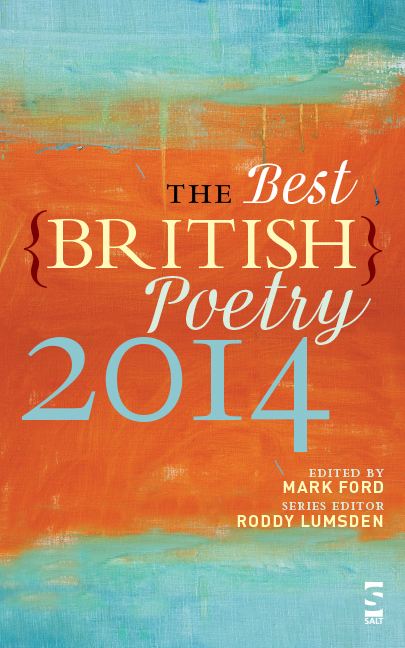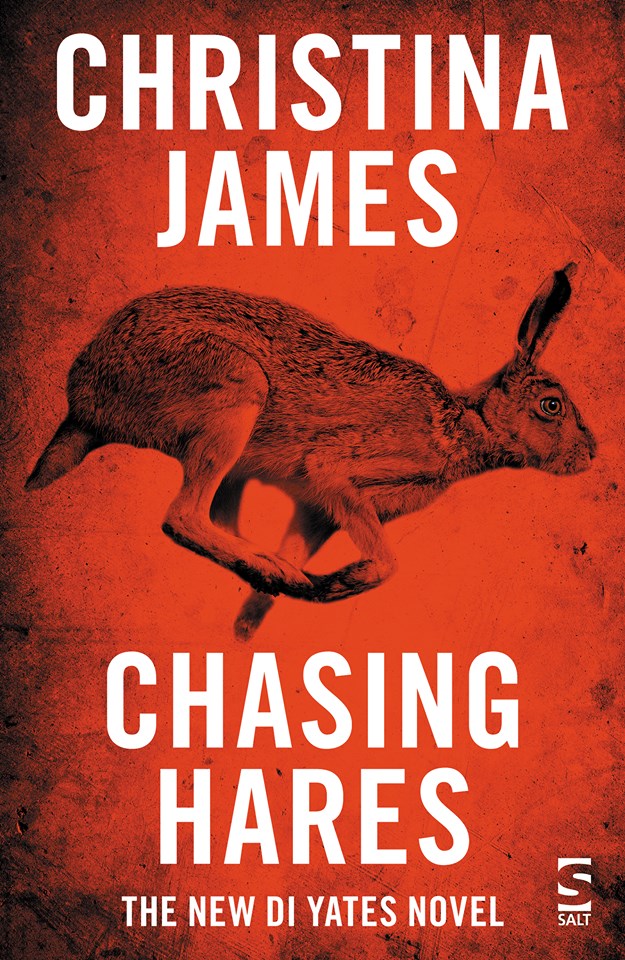
How does one write a review of an anthology of poetry that will do justice to all its poets and encourage readers to want to taste its fruit? Let me dangle that last word, tantalisingly close, on one of the boughs of Salt Publishing’s latest collection of compressed experience and knowledge, The Best British Poetry 2014. Ah, the temptation of the succulent flavours of sixty-six authors, when insinuated into the conscious and the sub-conscious by Guest Editor Mark Ford, whose introductory blandishments would out-Satan Satan (‘What would Milton or Tennyson make of this poem?’ he asks.). He doesn’t, however, sell the fruit individually, but tells us, to make such a selection as this, that he goes on his ‘nerve: a poem rings one’s bell, or it doesn’t.’
So here I am, already reaching out to taste and try, knowing that not all Ford’s choices will ring my bell, for an anthology is a single collection to appeal to many and, as editor, he can’t please everyone all of the time. And, in a sense, I have the same problem; if I single out individual poets, then those omitted may well feel slighted, even if I explain patiently that my preferences are the ones which chimed with me.
What’s my solution? To say that I’m delighted with the range of poems here and I’m going to highlight one, purely because it sums up for me what the whole is all about. It’s ‘Girl to Snake’, which didn’t just ring out at me; it waved its clapper in my face!
Apart, of course, from the poems themselves, one of the best features of the Salt ‘Best Poetry’ selections is the section of potted bio.s, which include comments about each of the poems by their respective authors. Abigail Parry didn’t need to say much about ‘Girl to Snake’, which speaks plentifully all on its own, though she admits to an ‘attraction’ to poems about ‘transgression, particularly when they feature smooth-talking animals and particularly when the poem’s on the side of the transgression.’ Tantalising, indeed.
Since the poem consists entirely of a girl talking to a snake, the creature itself does no smooth talking, but ‘Ropey Joe’ is seductive, nevertheless, and insinuates himself into the household; he’s ‘thin enough
To slip beneath the door and spill [his] wicked do-si-do
In curlicues and hoops across the floor.’
There is an unmistakeable sense of naughty fun in this, though Abigail Parry says quite clearly that she didn’t intend it to be an ‘overtly sexual poem’. And she’s correct: the sexual symbolism and some gorgeous double-entendres are there all right (and, in slang terms, equally relevant to drug-taking!), but what she captures is the desire for knowledge that overwhelms a girl on the cusp of adulthood; she is desperate to make sense of the things that she has heard of, that appeal because they are forbidden, that constitute a ‘wicked line of dominoes’ in our post-lapsarian world. And she will taste… and she will find out… and the knowledge, however dangerous, will be preferable to the ignorance of innocence.
Parry’s inclusion of the colloquial appellation ‘pal’, her choice of a monologue, her use of those lists to which I’ve recently referred, her deft handling of monosyllables for pace, her command of metre and her deliberate play to the ear all cohere to make the poem ring true and capture that moment in a girl’s life when she simply must step away from the tediously tame reality of the domestic safety her parents have created.
And that’s what you get with this anthology: a tantalising verse crop of fruit on the tree of knowledge, dangled by Mark Ford for our delectation and designed to appeal to our taste and our sense of adventure in a poetic world that has darkness and sadness and pain and disease and war and death and destruction and sex and drugs and vice… and delight. Of course, Milton and Tennyson (and, especially, Blake) knew perfectly well that the things on the knowledge side of the world make much more interesting subjects for poetry than innocence.
Is anything beginning to chime with you yet?
The Best British Poetry 2014, available from Salt Publishing here.


Well you’ve certainly woven a tempting tale here, Christina. It sounds as if this is a terrific collection. I’m not much of a poetry reader, but were that the case, I’d pop this in my basket in a trice!
Thank you, Valerie. A good time to read poems would be when you were faring along the canals! They are always best read aloud, by one to another! Or when moored on the Canal du Midi, with the evening sun setting and the wine glowing with all the ruby gorgeousness of the warm south. 🙂
I don’t read a lot of poetry, but I admire the talented poets. It does sound like a good read though 😀
I most enjoy performance poetry; there’s something so lively and engaging about having a poet lift the poems from the page, but I do enjoy reading verse. This is a wonderful collection.